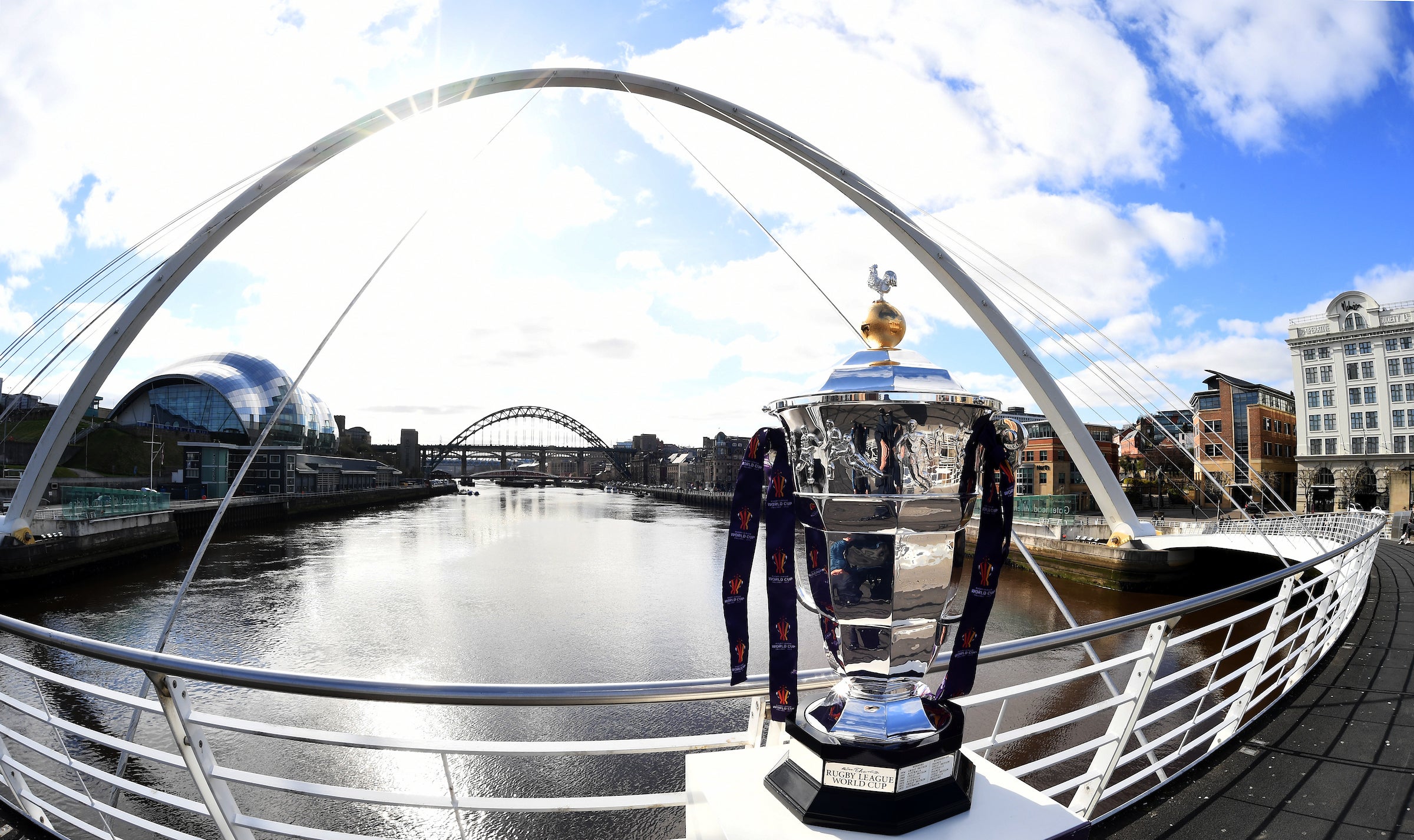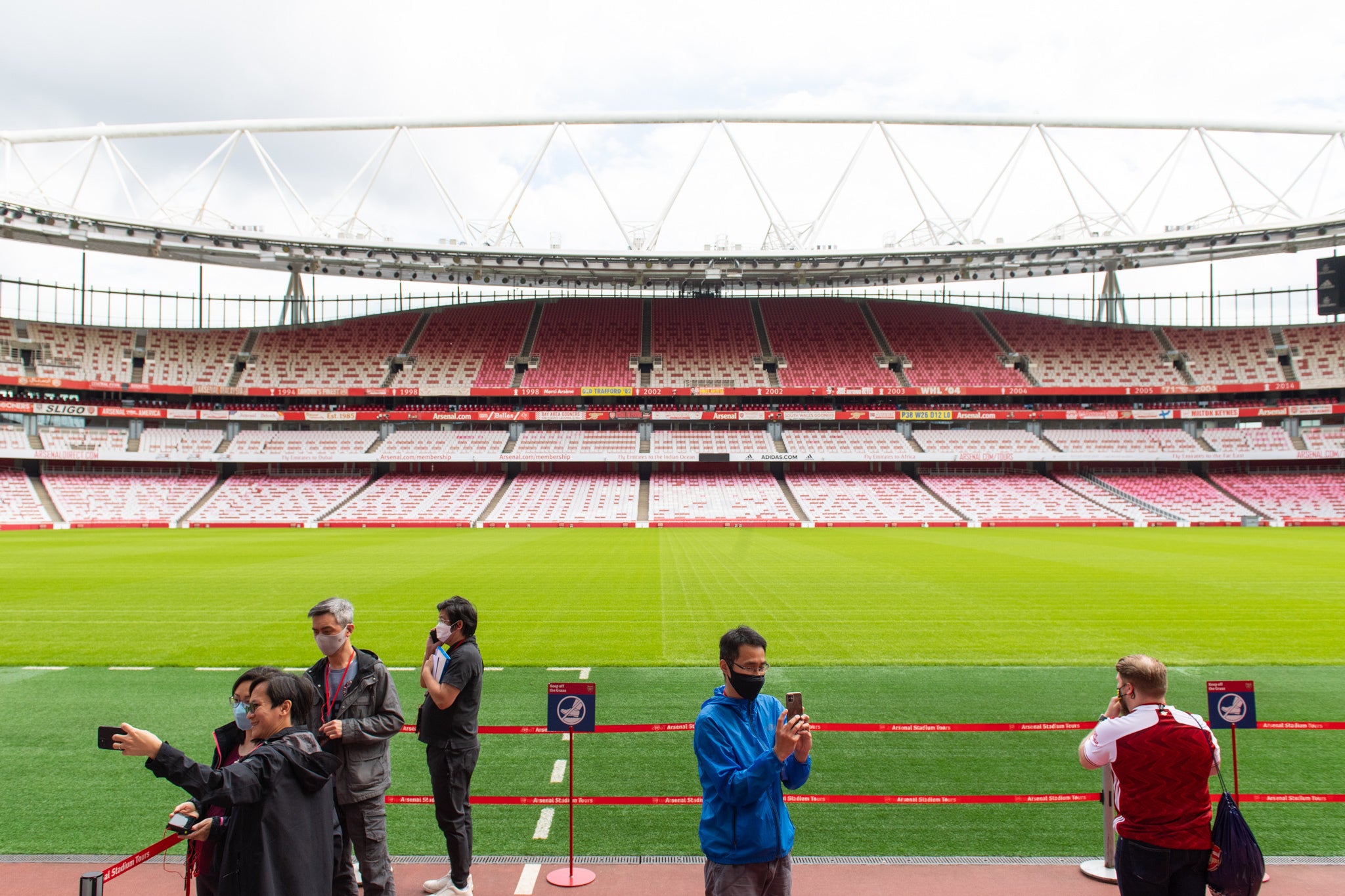World Cup close to being cancelled before organisers chose ‘least-worst’ option
The tournament has been postponed a year to 2022 after Australia and New Zealand pulled out.

Organisers admit they came close to cancelling the 2021 World Cup but insist they could be in a stronger position financially when the tournament is held in England in 2022.
A postponement, which had been anticipated since Australia and New Zealand pulled out of the tournament a fortnight ago, citing safety fears amid the coronavirus pandemic, was finally confirmed on Thursday morning.
World Cup board chairman Chris Brindle told a press conference it was a “solemn day for the sport” while chief executive Jon Dutton said the decision to postpone was the “least-worst” option.
Organisers initially vowed to press ahead with the tournament in the autumn without Australia and New Zealand but were forced to acknowledge defeat when all 16 NRL clubs publicly backed the boycott, a move Dutton says was set to have a domino effect on the rest of the nations.
“We are bitterly disappointed,” Dutton said. “We’ve worked tirelessly as a team for almost six years to put the tournament into a quite remarkable position.
“Over the weekend, into Monday, it became apparent that we couldn’t continue. It wouldn’t have been a world-class tournament and it would have been irresponsible to carry on.
“Postponement was never an easy option. It’s fair to say that we did come close to a cancellation and ultimately I guess the least-worst option was to postpone.
“There are a lot of people hurting at the moment but being a leader is about making tough decisions and I think we’ve stood up for what we believe in.”
Dutton says he was encouraged by a survey carried out by his organisation of domestic players in Australia and New Zealand that showed more than 85 per cent wanted to compete this autumn.
“This has always been about the players,” he said. “As administrators, we don’t have the right to take away the hopes and dreams of players to play in the tournament.”
Dutton told the press conference that he does not anticipate having to go back to the UK Government which backed the tournament to the tune of £25million, for extra cash to fund the continuation of the organisation for another 12 months.
That, he says, is due to higher-than-expected commercial income which provided the means to fund the costly bio-security measures that were put in place to allay safety fears, including the cost of charter flights and quarantine.
“Our exceptional commercial performance has really helped make sure that we don’t have any great demand on the public purse given the significant investment so far,” Dutton said.

“We believe we will be able to stand on our own two feet for as long as we can through our exceptional commercial performance.
“We will probably be in a stronger financial position in 2022. Another 12 months will bring opportunities to bring on board more commercial partners and actually over the last couple of weeks we’ve been approached by more people.”
Dutton says the broadcast partnership with the BBC, who had planned to show all 61 matches across the men’s, women’s and wheelchair competitions, will be unaffected and he hopes to keep the schedule as intact as possible.
The tournament is likely to start earlier in 2022 to avoid a clash with the FIFA World Cup in Qatar which starts on November 21 and Dutton says he hopes to re-publish the schedule before Christmas.
“We have some draft dates and hope to confirm those very shortly,” he said.
“There will be some disturbance inevitably. We might see a change in some of the venues but overall I think we’ll come out in a very similar place.”
Dutton work has begun on securing binding participation agreements with Australia and New Zealand and International Rugby League chairman Troy Grant downplayed the prospect of the Kiwis being punished for reneging on their agreement.~
Grant says he has already received assurances from both ARL Commission and NZRL of their support for 2022 and admitted tentative proposals for Australia and New Zealand to play Test match rugby league in the southern hemisphere at the end of this season “wouldn’t be a good look”.
“There is some relationship-building to be done,” Grant said. “We’re aiming to reunite the game. There were a lot of lessons in the last couple of weeks and we’ll learn from them.”
It was confirmed that the competition will still be known as RLWC2021, copying the move of Euro 2020, and Grant says the postponement will not affect plans to stage the next World Cup in France in 2025
Meanwhile, with the tournament set to start earlier, Dutton is hoping Super League clubs do not extend the 2021 season into November as they did last year.
“We’ve been in touch with Super League Europe and the RFL and I’ve sent a personal message to all of the club chief executives and owners this morning and got a lot of positive feedback,” he said.
“It’s about working together. We’ll sit down and work out what is best for the sport.”
Bookmark popover
Removed from bookmarks